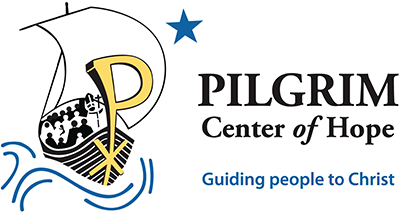Rest in peace (R.I.P.) are not just three words without significant meaning. When the soul leaves a body to stand before Our Lord, the body remains behind until it rejoins the soul at the end of time during the final resurrection. The Catechism of the Catholic Church #1016 states:
“By death the soul is separated from the body, but in the resurrection, God will give incorruptible life to our body, transformed by reunion with our soul. Just as Christ is risen and lives forever, so all of us will rise at the last day.”
This is why the Church treats human remains with the utmost respect. The funeral liturgy focuses on this reality, as the beautiful prayers and music help those present to be filled with hope as they celebrate the passion, death, and resurrection of Jesus during the holy Mass, which is itself an experience of the timeless reality of the presence of Almighty God.
After the funeral Mass, the remains of the deceased - whether in a casket or an urn - are taken to a sacred place of interment where the funeral liturgy continues with the burial rite. The tombstone or burial marker signifies the resting place of the loved one, so in the days, months, and years ahead, the remains can be visited, and the deceased one prayed for, especially on anniversaries or days when we remember the dead. This proper care reflects our belief in the final resurrection as taught by Christ.
To spread ashes of the deceased or to divide and keep them at a residence violates trust in God’s continued care and eternal plan for the loved one. Such practices do not reflect full regard for the dignity of the remains and what might happen to them in the future, when the last relative is no longer able to show concern for them.
The soul waits to be reunited with the body; that is why the body should be allowed to rest in peace until that day, as we continue to pray for our loved ones.
One of the reassuring teachings of our Catholic faith is that we can assist our loved ones with our prayers. Our faith compels us to pray for the faithfully departed. At every Mass, every day, every place in the world, we pray for those who have died. The Catechism of the Catholic Church explains:
“All who die in God’s grace and friendship, but still imperfectly purified, are indeed assured of their eternal salvation; but after death they undergo purification, so as to achieve the holiness necessary to enter the joy of heaven” (CCC 1030).
Our prayers can help those who have died with their process of purification. During this Jubilee Year of Faith, we the faithful are reminded that we can gain a Plenary Indulgence (the removal of all temporal punishment due to sins that have been confessed and forgiven) for the faithful departed by receiving the Sacrament of Reconciliation within twenty days, going to Mass and receiving Holy Communion, by praying an Our Father and Hail Mary for the intentions of the Pope, as well as performing a spiritual work such as praying the Rosary before the Blessed Sacrament or spending at least a half hour in prayer before the Blessed Sacrament. God expects those of us who believe in him to be ministers of his mercy for the sake of his body, which is the Church.
Originally written by Pilgrim Center of Hope for Today's Catholic newspaper.

Mary Jane Fox, D.C.H.S. is Co-Founder & Co-Director of Pilgrim Center of Hope with her husband, Deacon Tom Fox. The two left their careers after a profound conversion experience and began working full-time in ministry at their parish in 1986. After several years and having impacted tens of thousands of families, the Foxes founded Pilgrim Center of Hope in 1993 as a response to the Church’s call for a New Evangelization. Mary Jane is an invested member of the Equestrian Order of the Holy Sepulchre of Jerusalem, a Dame of the Holy Sepulchre.
Pilgrim Center of Hope provides events, experiences, and media; initiating a desire in people to encounter Jesus Christ in their daily journey of life. See what’s happening & let us journey with you! Visit PilgrimCenterOfHope.org.

